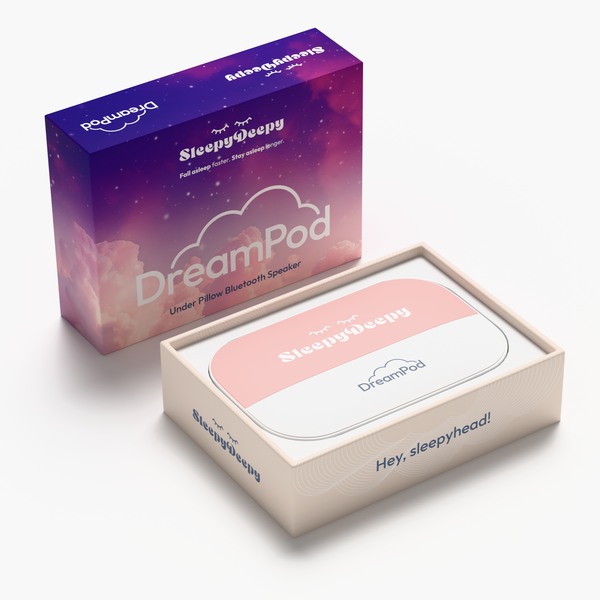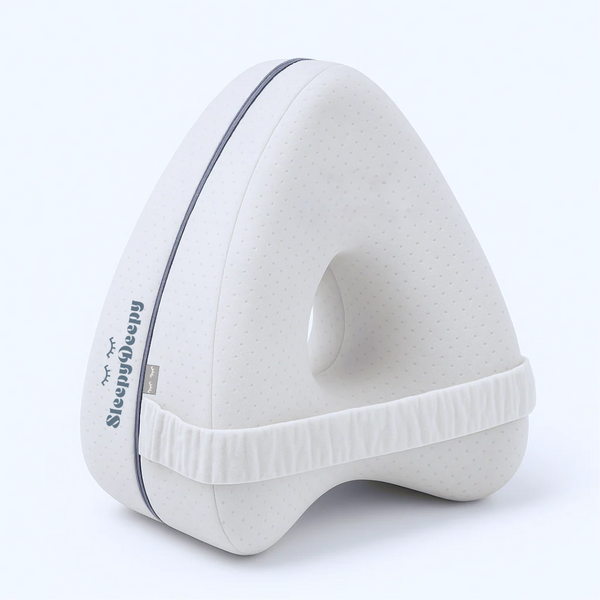Sleep hygiene might sound like something involving lavender spray and silk pyjamas, but it’s really just about the habits that set you up for proper rest.
And the good news? You don’t need to overhaul your life or build a monk-like bedtime routine. Small, intentional shifts can completely change the quality of your sleep.
Let’s jump into 10 sleep hygiene tips that are simple, effective, and backed by science (and our own night owl-to-sleep-champion journeys).
1. Stick to a Sleep Schedule (Yes, Even on Weekends)
Your body loves rhythm. When you wake up and go to bed at the same time every day, your internal clock gets the memo: this is when we rest, and this is when we rise.
💡 Try this: Set a bedtime alarm 30 minutes before your ideal sleep time. It’s the grown-up version of your mum telling you to brush your teeth.
2. Create a Wind-Down Ritual
You can’t go from emails to dreams in five minutes. Your nervous system needs a cue that it’s time to power down - listening to a sleepy playlist on your DreamPod Pillow Speaker.
Make it yours – just make it consistent.
3. Keep Your Room Cool and Dark
The ideal sleep environment? Somewhere between “slightly chilled” and “cozy cave.”
Studies suggest 16–19°C is ideal. Add in blackout blinds or a DreamMask to block ambient light, and your body will get the melatonin memo much faster.
4. Power Down the Screens
Blue light suppresses melatonin. That means your late-night scroll might be delaying sleep, even if it feels like you’re winding down.
Try to shut off phones, laptops and TVs at least 30–60 minutes before bed. Or wear blue-light blocking glasses if you must sneak one more TikTok.
5. Skip the Nightcap
Alcohol can make you sleepy – but it actually disrupts your sleep cycles, especially REM. So while you might fall asleep quickly, you’re more likely to wake up in the night and feel groggy the next day.
Opt for a calming herbal tea to support natural relaxation without the hangover.
6. Cut Caffeine After 2pm
Caffeine has a half-life of 5–6 hours, meaning it sticks around in your system far longer than you'd think. Even if you don’t feel wired, it can quietly reduce deep sleep.
If you're craving an afternoon pick-me-up, try a short walk, a hydrating snack, or a podcast to re-energise your brain.
7. Get Morning Light Exposure
Your body clock (circadian rhythm) is regulated by light – especially natural sunlight in the morning. It tells your brain, “We’re awake now,” and sets the timer for melatonin production later that night.
Try to get 10–15 minutes of daylight within an hour of waking. Bonus points if it’s outside.
8. Use Your Bed for Sleep (and That’s It)
Train your brain to associate your bed with sleep – not stress, snacking, or scrolling.
Avoid working or watching TV under the covers. The more your brain sees bed = rest, the faster it will wind down when you climb in.
9. Keep a Sleep Journal (Short + Sweet)
If your mind races at night, journaling can help clear the mental clutter. Just a few lines before bed can offload thoughts, worries, or to-do lists.
It’s not about writing a novel – it’s about hitting the mental “save and shut down” button.
10. Keep Your Sleep Tools Handy
Sometimes we all need a little support. Having your sleep tools in reach makes it easier to stick to good habits.
Here are a few of our favourites:
-
Pillow Spray – to trigger your brain's olfactory system and signal that it's time for bed
-
DreamTape – supports nasal breathing overnight
-
DreamMask – blackout comfort for deeper rest
-
DreamPod – soothing sound, no earbuds required. The pillow speaker you've been waiting for.
Set them on your bedside table and you’ve already made sleep a priority.
Final Thought: Sleep Hygiene Isn’t About Perfection
It’s about consistency. You don’t need to tick every box, every night. Start with one or two that feel doable. Build from there.
Because deep, nourishing sleep doesn’t come from hacks – it comes from habits. The kind you actually enjoy.


























